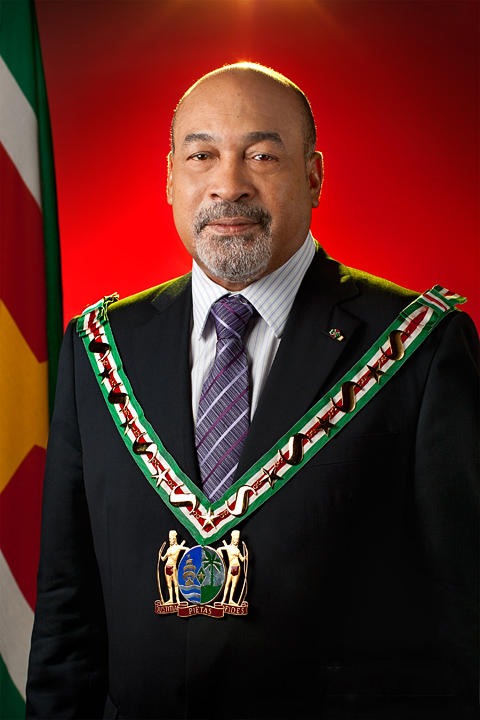The prosecution on Friday suspended the execution of the prison sentences imposed earlier this week by the Court of Justice on ex-president Desi Bouterse and four co-convicts.
This decision was made after the lawyer of the five men, all ex-army officers, formally informed the Public Prosecution Service that they were considering asking for clemency from the President of Suriname.
Former president Desi Bouterse was sentenced on Wednesday during an appeal to an unconditional prison sentence of 20 years for his involvement in the murder of fifteen men on December 8, 1982. It was not proven during the trial that Bouterse himself murdered one or more victims.
Bouterse, the then commander of the Surinamese National Army and de facto head of government at the time of the murders, was the main suspect in this criminal case.
The other suspects, Ernst Gefferie, Iwan Dijksteel, Stephanus Dendoe and Benny Brondenstein, were each sentenced to 15 years in prison.
According to current legislation, the convicted persons must submit the request for pardon to the registry of the court that convicted them within 8 days after the sentence has been served on them, after which the request will be forwarded to the Head of State.
The president will then have to seek advice from the court regarding the pardon request, after which the head of state must make a decision.
It is still unclear whether the convicts will actually submit a request for clemency.
Although he has officially informed the prosecution of his clients’ intention, their lawyer, Irvin Kanhai, is not in favour of submitting a request for clemency.
The lawyer in an interview said he has not defended a murderer in the December murders criminal case.
“I assisted a revolutionary, an ex-army leader. For me he is not a murderer. No one saw him pull the trigger,” the lawyer said.
He believes that the blame is not being placed where it belongs. Kanhai maintains that the Netherlands is to blame. According to the criminal lawyer, that country initiated several coups to oust Bouterse, who himself came to power in a military coup in February 1980.
According to Kanhai, files that will not be accessible in the Netherlands until 2060 would reveal what the role of the former coloniser was in preparations for those invasion plans.
The counsellor still has to discuss with his clients what will be included in the possible request for clemency.













